Within the Affric Highlands rewilding panorama in Scotland, efforts to guard and restore woodland are supporting pure regeneration and the realisation of a wilder, extra biodiverse panorama.
James Shooter
Pinewoods below stress
The Caledonian Forest – the traditional old-growth forest of Scotland – is likely one of the nation’s richest habitats. A globally distinctive ecosystem, it’s characterised by wild Scots pines, complemented by species reminiscent of juniper, birch, willow, rowan and aspen, all of which have naturally developed collectively over 1000’s of years. It offers a house for all kinds of uncommon and tailored wildlife, together with pine martens, capercaillie, black grouse, crimson squirrels, and Scottish wildcats, in addition to butterflies, lichens, fungi, and wildflowers.
At its peak, the Caledonian Forest lined many of the Scottish Highlands, however historic local weather change, along with forest clearance for agriculture, led to widespread decline. At this time, lower than 2% stays, with 84 pinewood fragments scattered throughout a largely treeless panorama. With many giant estates within the Scottish Highlands managing their land to encourage excessive deer numbers for sport taking pictures, unnaturally excessive ranges of deer searching prevents new generations of pines from establishing.
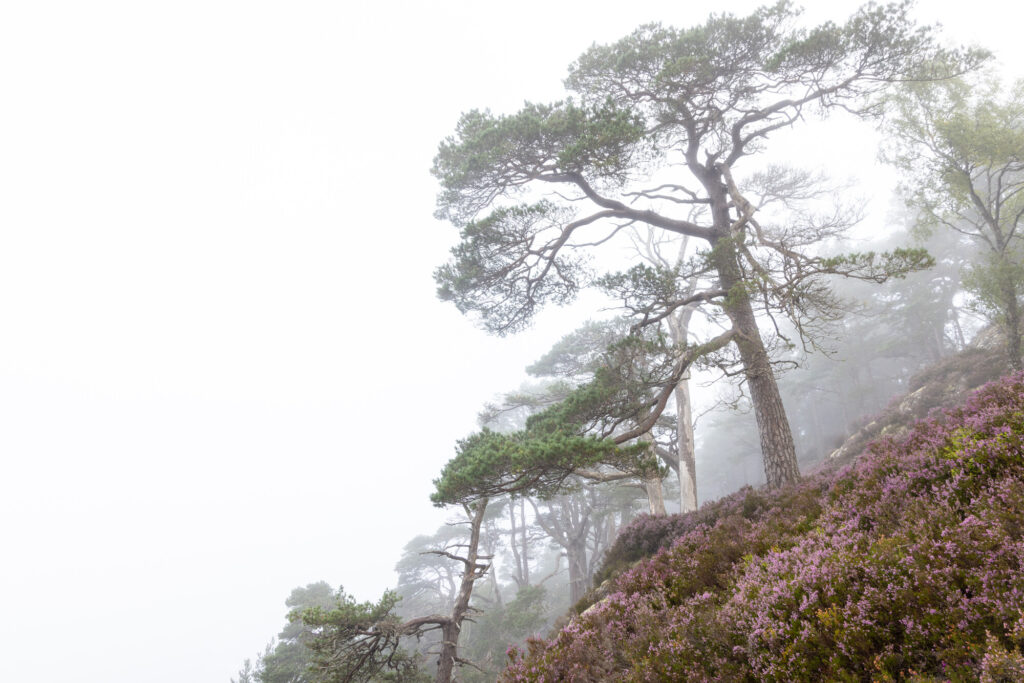
James Shooter
In direction of pure regeneration
In 2023, efforts to get well nature within the Affric Highlands primarily targeted on woodland and riparian restoration. These have been guided by a wild tree survey, which the native rewilding staff started in late 2022, with a give attention to the assorted estates throughout the Affric Highlands panorama. The continued survey, which is basically based mostly on fieldwork, seems to be on the distribution, well being, and variety of native tree species on every property.
“The general intention is to determine the place the remaining variety hotspots are and that are essentially the most severely threatened,” explains James Rainey, an ecologist with Bushes for Life, Rewilding Europe’s accomplice within the Affric Highlands. “This enables us to allocate sources for max impression, when it comes to safety and restoration. We need to guarantee as many bushes as potential are protected – in bigger woodlands and alongside rivers and gorges the place bushes are clinging on in locations the place deer can’t attain them – in order that pure regeneration can happen.”
Such regeneration can assist the restoration of wildlife species reminiscent of black grouse, capercaillie and Scottish wildcat, enhance genetic variety, and improve the resilience of bushes to variables reminiscent of local weather change. It additionally ensures the fitting tree grows in the fitting place, serving to to create a mosaic of habitats that retailer and sequester carbon.
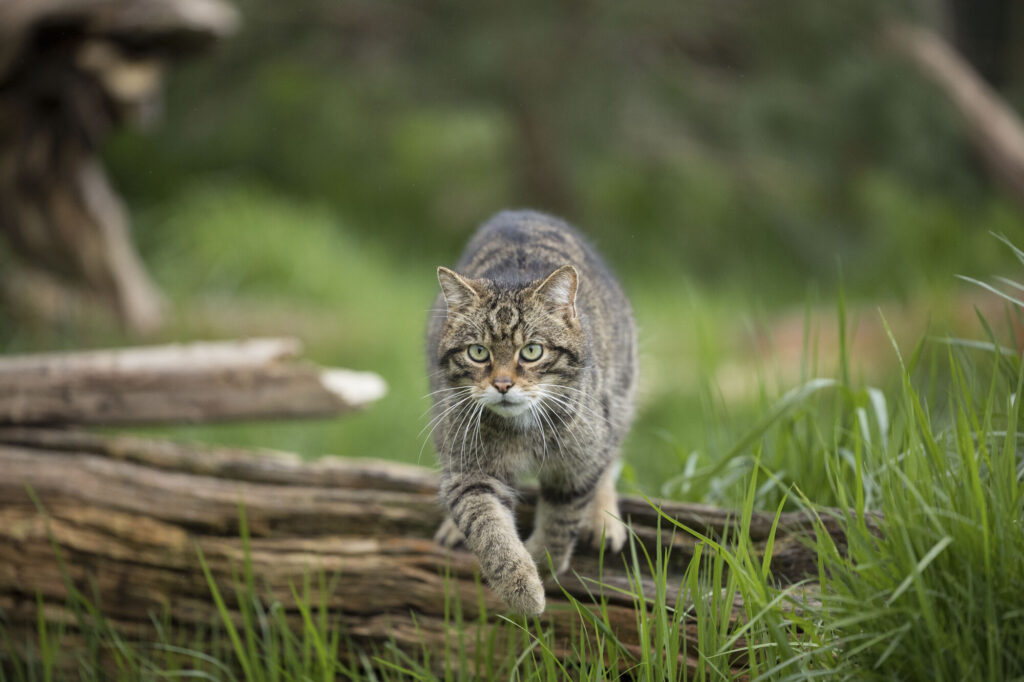
Daniel Allen
A treasured remnant
The regeneration of Scotland’s native pinewoods took a small however essential step ahead in late 2023 with the safety of a forest remnant in Glen Loyne, situated on the western finish of the Affric Highlands rewilding panorama. Located on the East Glenquoich Property, the traditional woodland at present incorporates 57 pines, together with Scotland’s oldest wild Scots pine – regarded as at the least 566 years outdated. The ancestry of such pines stretches again to the final ice age, which ended about 10,000 years in the past.
In cooperation with the proprietor of East Glenquoich – and with funding supplied by the household of Harry Steven, who co-wrote “The Native Pinewoods of Scotland” within the Fifties – Bushes for Life oversaw building of a brand new, deer-proof fencing “exclosure” round as a lot of Glen Loyne’s unprotected pines as potential. This can enable younger seedlings to develop with out being eaten – one thing that hasn’t occurred for many years.
“We totally recognise that fencing is a short-term, quick-fix resolution,” says James Rainey. “Ideally, we’d prefer to see extra landscape-scale deer administration within the Affric Highlands space, which might actually assist pure regeneration to take off. That is what we’re working in the direction of, but it surely’s a long-term course of.”
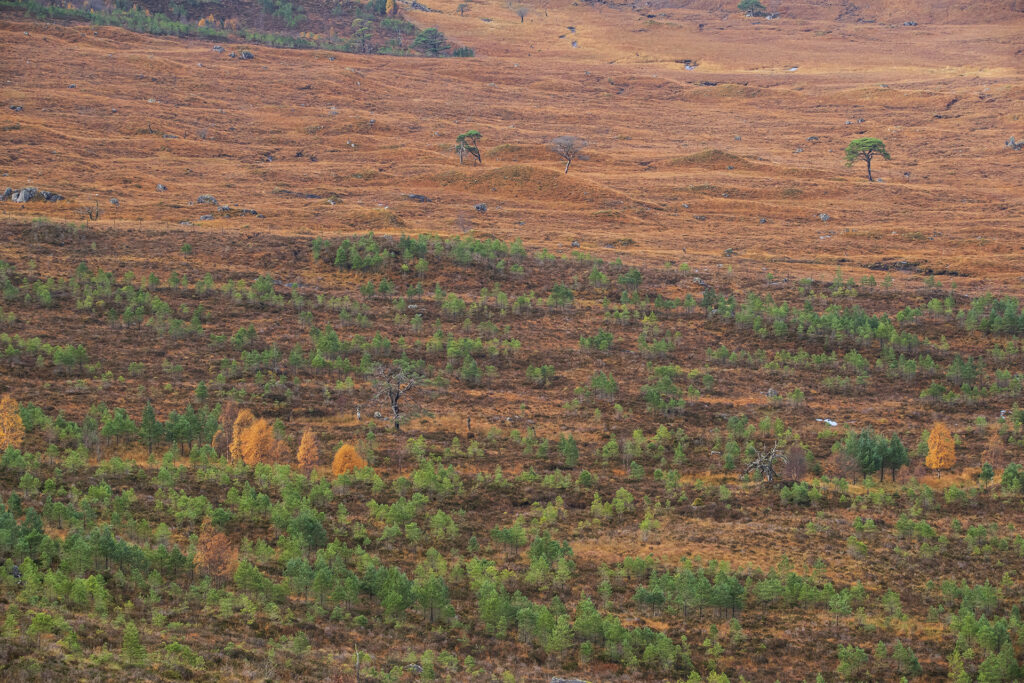
Siân Addison
Riparian restoration
Re-establishing pure processes and restoring the performance of woodland alongside rivers throughout the Affric Highlands – notably at increased elevations the place tree cowl is especially sparse – is one other urgent concern.
“Rivers throughout the Highlands are warming up quickly on account of local weather change,” explains Paul Greaves, the Affric Highlands rewilding staff’s riparian officer. “With out the shading supplied by bushes, that is threatening chilly water-adapted aquatic species – from Atlantic salmon and brown trout to freshwater pearl mussels and aquatic invertebrates. Riparian restoration might help to minimise future temperature will increase.”
Funded by a Scottish Energy Basis grant and a donation from Startline Motor Finance, the Affric Highlands rewilding staff restored 23 hectares of riparian woodland on the 4000-hectare Corrimony Farm within the autumn of 2023. Working inside deer-proof fencing, a gaggle of volunteers planted a spread of native tree species, together with downy birch, a number of sorts of willow, rowan, juniper, aspen, and chook cherry alongside small tributaries of the River Enrick, at an elevation of between 400 and 550 metres. Many of those species are very palatable to deer and at the moment are not often discovered within the Scottish Highland panorama.
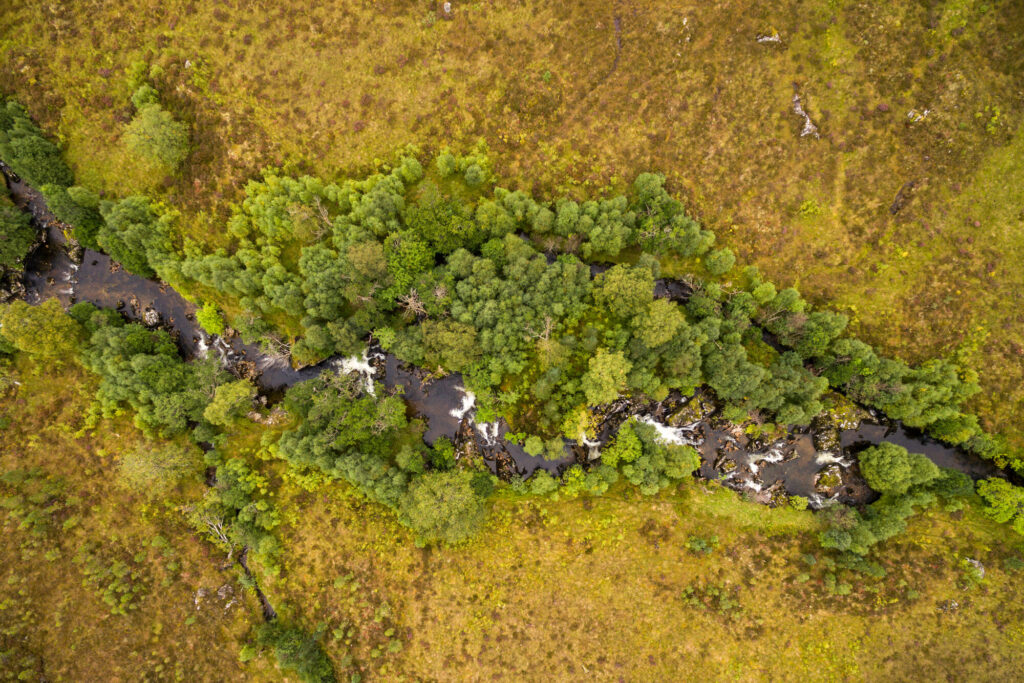
James Shooter
Stakeholder engagement
The Affric Highlands rewilding staff have established good relations with David and Barbara Girvan, the homeowners of the Corrimony Farm. The thought of restoring riparian woodland on their land happened following conversations that came about via the Glen Urquhart Farm Cluster, which the staff established in early 2023 to assist farming enterprise throughout the Affric Highlands, and to assist make sustainable, regionally produced meals simply accessible for communities.
“Transferring forwards we need to scale up riparian restoration, ideally via landscape-scale interventions,” says Paul Greaves. “Finally it depends upon what the landowner desires to take ahead, after which we will look to safe funding.”
“It’s been nice to get extra bushes alongside the river and I’m eager to see how they develop,” says David Girvan. “I’d be open to extra restoration sooner or later, and I hope the work carried out at Corrimony results in related initiatives on different estates.”
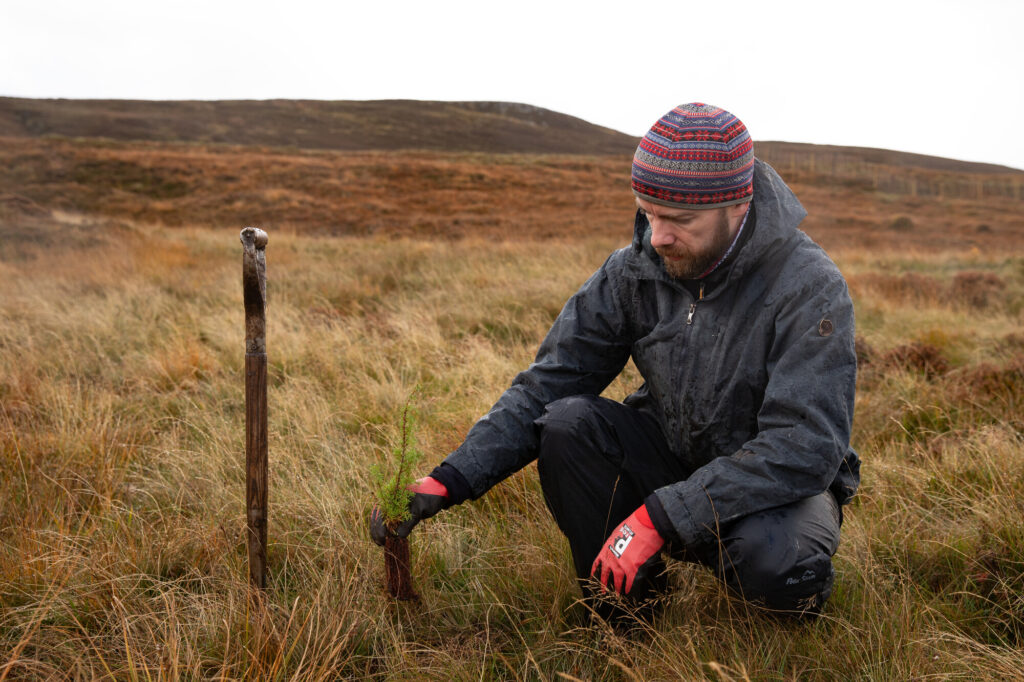
Siân Addison
Invaluable assist
Rewilding Europe’s work in our rewilding landscapes is supported by a variety of extremely valued companions. We might notably prefer to acknowledge these offering core funding – notably the Ecological Restoration Fund, the Dutch Postcode Lottery, WWF-Netherlands, and Arcadia. Their longstanding assist performs a crucial function in enabling us to ship and scale up rewilding impression.
Wish to know extra?
This weblog is taken from an extended story entitled “The regeneration sport”, which featured within the Rewilding Europe Annual Evaluate 2023.
Obtain a PDF of the story Or try our Annual Evaluate 2023


















